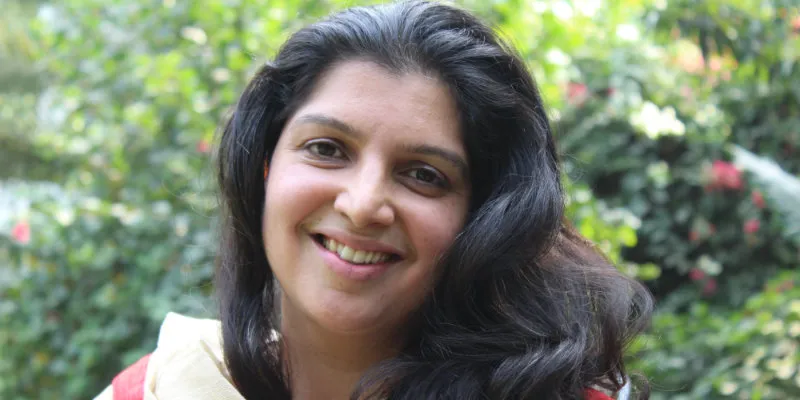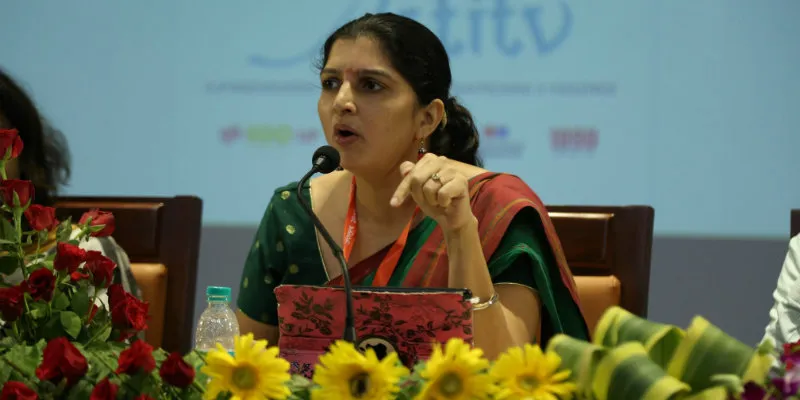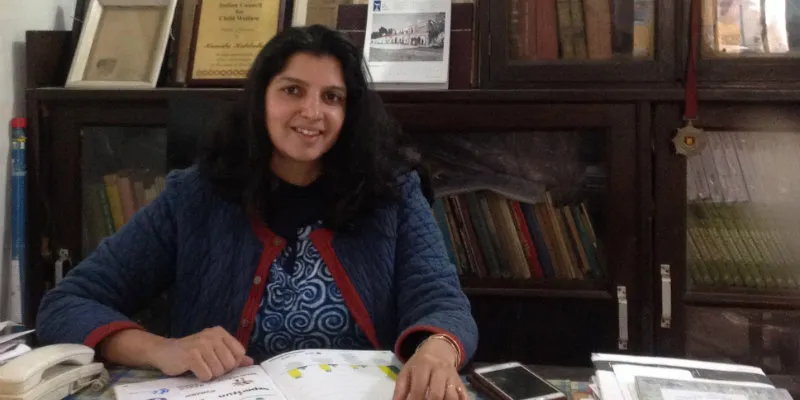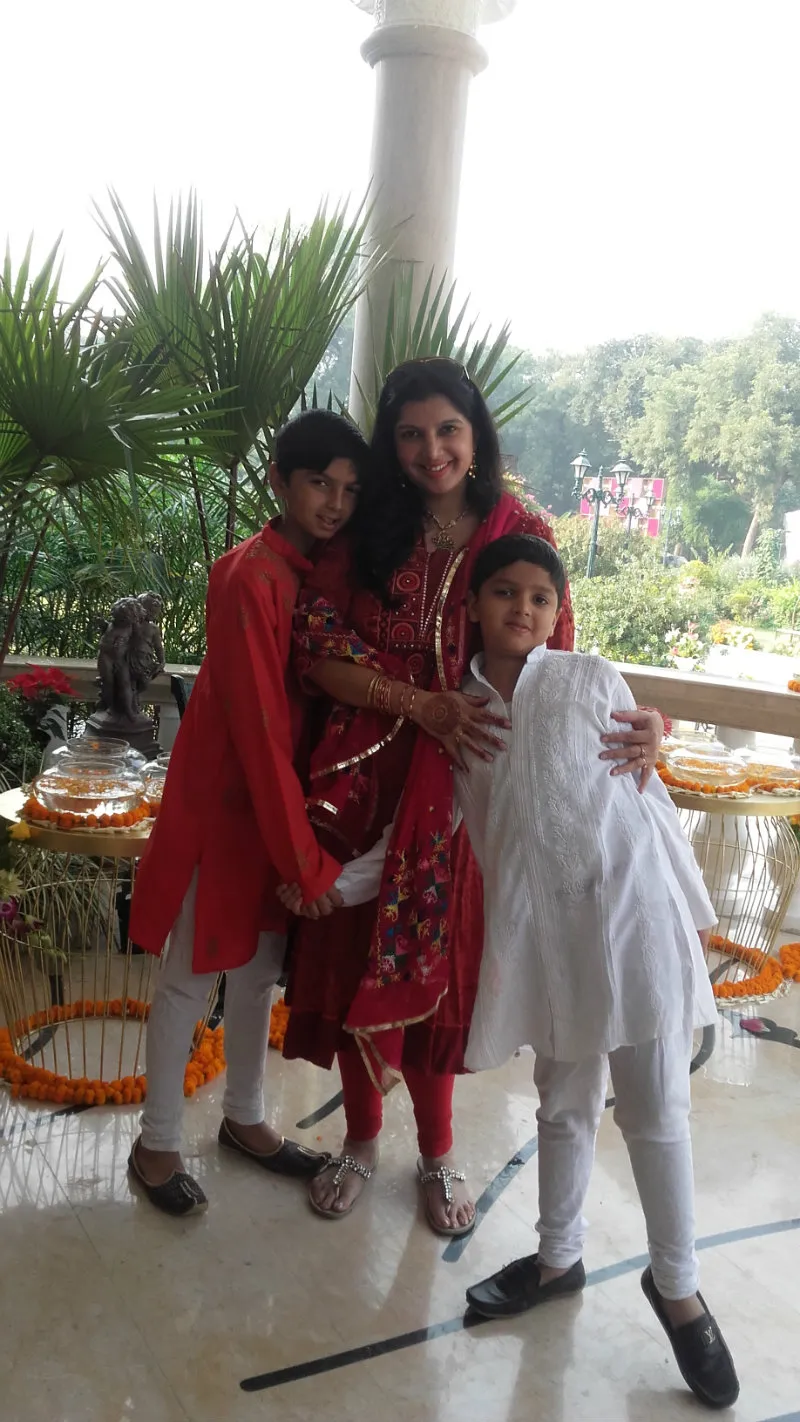From managing ancestral property to skilling women, Lucknow’s Jyotsna Habibullah is helping change lives
From restoring her family’s ancestral property in Lucknow to skilling rural women for livelihood opportunities, Jyotsna's life has passed many milestones.

Jyotsna Kaur Habibullah’s background of relative privilege infused her with the conviction that she must create opportunities for those who do not share similar fortunes. Thus, “Be of use”, is her motto of choice.
Jyotsna plays multiple roles. She manages the family’s restored 250-year-old property (the Habibullah Estate, Lucknow), promotes livelihood options for rural women, has been instrumental in the launch of what is now the state’s most visible mango festival, is the Founder-Chairperson of FICCI FLO (Lucknow-Kanpur) chapter and an evangelist for the Daan Utsav (a festival of philanthropy).
Of this diverse role set, he says, “To be able to dream and follow one’s passion is a fortune. To develop oneself individually but still be a part of the community and to make a difference is fantastic.”

Jyotsna, who holds degrees from Cass Business School, London, and St. Stephen’s College, Delhi, had her first work stint in her parents’ honey business, where she developed an interest in marketing. From Peter Satwant Singh and Sarparveen Kaur, who pioneered bee-keeping in Punjab and structured their business around economically empowering the poorest and marginalised, she learnt the ethics of hard work and the conviction to give back.
However, those lessons did not keep her from quitting the family company, “The learning was great but ultimately you need to build your own credibility,” she reasons. Her most prominent role in this branching out was in the Middle East (where she had moved post marriage) as the head of marketing for the region’s first low-cost airline.
Between 2006 and 2009, Jyotsna's two sons were born, and she was faced with the inevitable work-life balance questions. “After a point, became frustrating to not be able to work, even though the break was my choice. Women are easily shamed for either putting their careers above children or for ‘wasting’ their education by not working. Such questions are never asked of men. Yet if men pitch in with child-rearing responsibilities in the early years, this balance would be easier,” she says.

The year 2010, when Jyotsna moved to husband Amar’s paternal home in Lucknow, it was a turning point. The couple had always envisaged a return — perhaps some time in their twilight years, but the compelling reason for an earlier move was the need to give their two sons a “rooted upbringing surrounded by family elders”. These elders included Begum Hamida (Amar’s grandmother) — a former member of the UP Legislative Assembly, twice a minister of State, and a member of the Rajya Sabha; and Wajahat Habibullah (Amar’s father) — India’s first Chief Information Commissioner.
The shift though was not glitch-free and the initial months were filled with challenges such as finding a social circle while getting attuned to a relatively quieter city (the couple once ended up at a horror recreation house in the hope of finding a pub). And then there was the magnificent family abode, once home to the guests of the Nawab of Awadh and then to the London-Delhi Bank, falling quietly to disrepair. Architects in Lucknow suggested to the aghast couple that they tear it down.
But they had other plans. “The past does not belong to us. We hold it and preserve it to pass it on to the coming generations in the best manner that we can. It is not acceptable to simply demolish our architectural history,” says Jyotsna. However, that was not just an idea driven by emotion as her background in marketing had taught her the necessity of having an economic imperative to sustain the restoration. The first step was thus to get on board high-end brands who would identify with the distinctive retail space that the estate offered. In October 2012, the restored space was thrown open, drawing a mix of admiration (one media piece labelled them the ‘custodians of heritage’) and incredulity at the feat that had been pulled off in a city replete with stately but crumbling family homes.
In the intervening period, Habibullah also began visiting the family’s mango orchards in the village of Saidanpur (in Lucknow’s neighbouring district Barabanki). “I went in with fancy ideas of introducing newer revenue streams through fish farming and the like but was confronted by the lackadaisical attitude of the workers and convinced that just maintaining the orchard was an onerous task,” she says. The Central Institute for Subtropical Horticulture, Malihabad, became her go-to place for expertise on caring for the orchard while she also became a member of the Young People in Agricultural Research and Development — a global online and offline platform that brings together ideas and offers access to resources to realise the full potential of agriculture. Her forays into Saidanpur extended to creating better health services and bringing in expert help to add value to the cotton fabric weaving that had been practised traditionally by Saidanpur’s women.
The involvement with the orchard led to the idea of a mango festival. “It was inexplicable that the Alphonso should be India’s best-known mango while UP with its infinite variety should have no coordinated event to celebrate the fruit,” she says. The deeper concern behind the idea was the large number of poor farmers (the state has the second highest area under mango cultivation in the country) were forced to sell for Rs 10 per kilogramme, a fruit that fetched Rs 70 for a kilo in the neighbouring cities. The first festival in 2013 drew mostly local visitors out of curiosity. However, by 2017, government support had put the festival firmly on the state’s tourism calendar and the festival hosted over one lakh visitors who bought 20 tonnes of mangos from the exhibiting farmers at retail prices. An amalgam of story-telling, culinary delights, competitions and recitals — the festival is now institutionalised under the UP Mango Festival Organising Committee.

Habibullah took on more naysayers when she became the Founder-Chairperson of FICCI FLO (the women’s wing of the country’s apex body of industry and commerce). “There was skepticism about a body which required paid membership. But once you decide to do something, nothing bogs you down,” she offers. Her determination paid off and at the formal launch of the body in April 2015, there were 120 members — much above the required minimum for a new chapter. Among the greatest achievements during her year long tenure, Jyotsna counts the initiation of the ‘FLO UP Women’s Awards’ which honour urban and rural women separately in categories as diverse as education and police through a process of nomination. She also initiated training women as drivers — a process she ultimately hoped would culminate in their getting commercial licenses and driving school vans. “It was a new body with so much to do. We should have been more sharply focused on skilling people,” she says of her tenure.
Jyotsna's days start at 5:45 with getting the boys ready for school and end at 10 pm. Though a prominent face in Lucknow’s social circuit, she restricts going out to twice a week while Sundays are reserved for the race course and family picnics. She enjoys baking and reading.
She wears with pride her role as a social entrepreneur, committed to creating opportunities for women from rural backgrounds. “Societies and institutions come later. Most women do not receive support from their families. Their pursuits are trivialised. Women like me must be compelled to change that system,” she says.
Yet, the role that fulfils her most deeply is that of a mother. “To be a good mother, you must be a good role model and have a purpose in life. You cannot just be a caregiver. Your ambition defines you. To be able to find that and achieve as much of it as possible while impacting the lives of others is the biggest lesson you can give your children,” she says.
And every single day, the 41-year-old adds one more page to that book of living she is crafting for her children.







